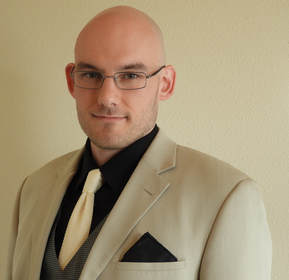Ep. 122 Alex Salter on the Empty Slogan of “State Capacity” and the Famous Somalia Challenge

Alex Salter is an economist with the Free Market Institute at Texas Tech University. Bob asks him about his recent article (with Vincent Geloso) criticizing “state capacity” as an explanation for economic development. Along the way, they also discuss the historical record and its challenge to modern-day anarchists.
Mentioned in the Episode and Other Links of Interest:
- The YouTube version of this interview.
- Alex Salter’s website and his twitter account.
- Alex and Vincent Geloso’s article on State Capacity.
- Ben Powell et al. on Somalia after state collapse.
- Two of Alex’s recent articles on the Fed: one and two.
- Help support the Bob Murphy Show.
The audio production for this episode was provided by Podsworth Media.

You seem pro prefer the Powell+Nowrasteh Somalia article over the Leeson one. Is there a reason? Haven’t really read either.
Loved this episode! Lots of thoughts.
1. Reverse causality of state capacity and wealth
This has always struck me as weird about the argument many liberals make, “see how rich our liberal cities are!” Sure, because politics is a cancer. If you aren’t already rich, there isn’t much to loot, the host system would just be strangled or never grow.
2. Politics zero-sum vs market positive-sum
Alex mentions that politics (or state capacity) isn’t productive, it only allows you to take stuff others have produced, or prevent them taking it from you. I think this is a key point.
3. Zero-sum is cancerous
Because politics, like most zero-sum systems, needs to grow in order to sustain itself, it eventually takes over every aspect of the host system. “The personal is the political, the political is the personal.” Identity politics. State schools, food stamps, now UBI. Eventually, everything will be engulfed.
4. The Constitution “didn’t work for the colonists”
I would argue the success of the US Constitution or US system in general is not that it’s politics-proof, but that it has slowed the cancerous growth of politics better than any other system in history. It didn’t “win,” but it’s done very well. That tells us something is better about it than most other systems.
“Democracy” doesn’t work in many/most places. The success of a societal system isn’t necessarily inherent in the system itself. Sometimes it is, e.g. communism cannot possibly work at scale for a long time. But many systems that we (in the west) would argue “work” don’t actually for most societies on the planet. When we try to give our institutions to Afghan warlords, we aren’t impressed by their results. Let’s say a good system is necessary, but not sufficient.
I think it’s the same with Anarcho-Capitalism. It won’t work for a people for whom Democracy doesn’t work.
You could grade systems on a scale of zero-sum to positive-sum, or politics to market. Maybe the earliest systems were just “let’s band together and whack those people, take all their stuff.” 100% focused on taking (“state capacity”). That makes you win against a system that is of comparable size but is only 50% focused on state capacity.
This can lead to an arms race into poverty, as mentioned in the interview. Yet somehow, we’ve managed to make it at least a few rungs higher in our history. At one point, a society that was at least somewhat positive-sum was resistant enough to hold back the roving bandits of zero-sum societies, or we’d still be living in caves.
I’m not sure what exactly causes these step function jumps. It could be leadership/negotiation/religion/ideology (“we’re all better off in the long run”), technology (easier to defend w/ guns maybe? agriculture?), who knows. There’s actually a book on this called “Nonzero: The Logic of Human Destiny,” but I haven’t read it yet.
I believe that Anarcho-Capitalism is the next rung up on the ladder after US Constitutional democracy. It’s even less zero-sum, and thus even more productive. But we might not be in the conditions yet in which that can defend us against the state capacity of the zero-summers. We might get there some day, but I think we’re currently unable to “do Anarcho-Capitalism” in the sense that Somalis are unable to “do Democracy” right now. Whatever it is in their societies and institutions and beliefs and ideologies and technology level, it currently doesn’t favor the next higher step on the ladder of cooperation.
That doesn’t mean Anarcho-Capitalism is impossible, just that we’re currently not equipped.
Nice interview Bob. Alex had a lot of thought provoking insights. I wonder what his thoughts are on foreign investment compared with countries based upon state capacity. I’m specifically interested in investment from private companies, since government loans and foreign aid isn’t [directly] driven by profits.
Is there any correlation between state capacity and investment? And, would a night-watchman state (or no-state) suffer from a lack of foreign investment. It seems like any minimal state or anarcho-society will necessarily start small. Being small, these societies would likely be dependent of foreign investment for large capital projects.
Also, what about potential corruption from foreign investments. Is there a correlation between state capacity and corruption from foreign investments. I can see arguments in either direction: less state capacity would be cheaper to influence vs. larger state capacity would have more opportunities to corrupt and that corruption would be easier to conceal.